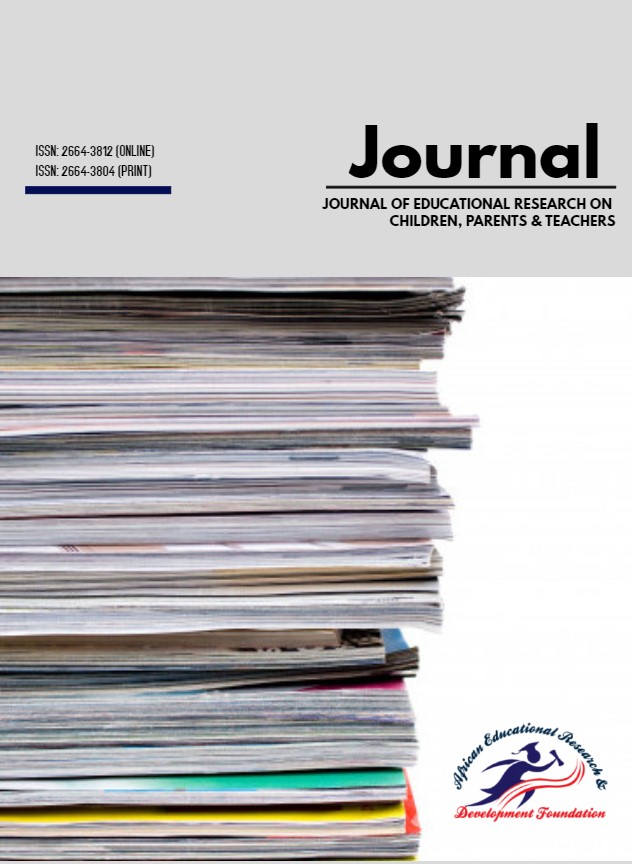
Abstract
[Full Article]
The study examined the reward management system and business educators’ job retention and productivity in tertiary institutions in Delta State Nigeria. Two research questions guided the study and one null hypothesis was formulated and tested at 0.05 level of significance. The study adopted a correlational survey research design. The population of the study comprised of 65 business educators in tertiary institutions where business education is offered in Delta State Nigeria. The entire population of 65 business educators was used as the sample because of its manageable size. The instrument for data collection was a structured questionnaire titled: “Reward Management System and Business Educators’ Job Retention and Productivity Questionnaire” (RMSBEJPPQ). The instrument was organized into two sections, A and B. Section A contained the demographic characteristics of the respondents while section B was made up of 10 item statements graded on a four-point rating scale of Strongly Agreed (4 points), Agreed (3 points), Disagreed (2 points) and Strongly Disagreed (a point). The instrument was validated and the reliability of the instrument was determined using the Cronbach Alpha Statistical tool. A reliability coefficient of .79 was obtained which was considered reliable. Data collected were analyzed using Pearson’s Product Moment Correlation Coefficient and Linear Regression statistical tools. The findings of the study revealed a positive but low relationship between organizational reward system and business educators’ job retention and productivity. Based on the findings, the study recommended among others that management of institutions of higher learning should ensure that institution’s reward policies be managed in such a manner that it would attract and retain high profile talented employees for higher productivity in institutions of higher learning in Delta State Nigeria, and that the organization’ reward management policies should be employees’ friendly in order to avoid or probably reduce the rate of attrition of staff who could contribute maximally to the achievement of goals in the institutions.
Keywords: Reward Management System, Intrinsic and extrinsic rewards, Employee
Retention and Productivity
Publication Date:
02/2024
Volume, Issue and Page Number:
Vol.5, Issue 1, Pg. 1 - 9
License:
Subscribe To Us
You can subscribe to articles by our contributors and authors by filling in the form with your email address. Your research interest is our interest.
Designed & hosted by Be IT Specialists

